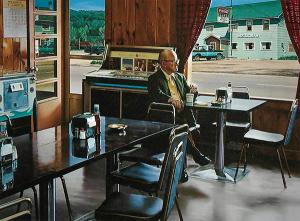This week was marked in great part by my first trip to Acton University in Grand Rapids, Michigan, a nearly week-long conference exploring the intersection of economics, spirituality, and culture. I was deeply inspired by many of the conversations I had.
Economics is a field I admittedly have little expertise in, but I thoroughly enjoyed speaking with people who are taking it seriously while earnestly pursuing the journey of faith. My main takeaway centered on themes of culture and personhood.
Many of my conversations revolved around integrating insights from spiritual practice to form individuals into powerful observers and engagers in the good, the true, and the beautiful—and applying those insights to understand society as a kind of macrosphere of the individual.
I’ll confess that I’m often tempted to retreat from cultural engagement, unsure whether my personal experiences and limited quantitative understanding qualify me to make sweeping generalizations. This hesitancy might stem from my time working at a think tank in D.C. during my doctoral studies, analyzing how public policy affects hunger. The experience left me somewhat jaded—yet that is no excuse for disengagement.
My time at Acton was a clear reminder of the importance of thoughtful engagement. It was a fertile environment for interdisciplinary synthesis. One especially fruitful conversation was with Fr. Eamonn O’Higgins, LC, about how the late Pope Benedict XVI understood culture.
You can read Fr. O’Higgins’ paper here:
The Political Thought of Joseph Ratzinger.
Fr. O’Higgins will also appear on a new series by my friend Marcus Peter, featuring conversations with Acton presenters and faculty. You can listen to those talks on Spotify:
Conversations from Acton University.
Another memorable discussion was with Fr. Robert Sirico about the economic implications of the Parable of the Talents, as explored in his book The Economics of the Parables. The parables have always captivated me, and studying them with the tremendous scholar Dr. Klyne Snodgrass was one of the great joys of my education.

Article of the Week: “Beholding the Ordinary”
Arthur Aghajanian‘s essay “Beholding the Ordinary” explores photorealism as contemplative art that dignifies the mundane. Once seen as technically flashy but shallow, photorealism is revealed as a form of visual devotion.
The MOCA exhibition Ordinary People elevates subjects like workers and everyday objects. Aghajanian draws rich parallels between photorealists and Christian monastics—both dependent on repetition, attention, and reverence. Artists like Audrey Flack, Richard McLean, and Ralph Goings elevate marginalized lives, echoing the sacredness at the heart of Christian theology. The genre becomes a quiet act of resistance—favoring deep attention over digital distraction.
Leadership, Resilience, and Spiritual Practice
One final recommendation for the week stems from an article I read on Harvard Business Review. It discusses workplace stress not just as a wellness issue but as a systemic business risk—one that can compromise productivity, compliance, and ultimately become a liability to an organization’s overall mission.
The article presents several worthwhile strategies for mitigating stress, but in my view, it overlooks a key component of a truly resilient workplace: the integration of spiritual practice.
This brought to mind a research article I read last year, which surveyed university students about the impact of spiritual practices on mental well-being. Unsurprisingly, the majority reported improvements in stress management, resilience, emotional balance, and a deeper sense of meaning in life.
The theme of resilience, in particular, resonated. The HBR article acknowledges that some roles—especially those requiring high levels of leadership—will never be free of stress. Stress is often baked into the responsibility itself. No amount of stigma reduction or scheduled movement breaks will eliminate that completely.
So what is a leader to do?
While the article highlights the importance of building resilience, it doesn’t address how spiritual practice might enhance it. Yet in the student study (linked below), resilience was among the most highly reported benefits—outranking stress management and emotional balance by a wide margin.
In other words, while spiritual practice may help reduce stress, its deeper value lies in how it equips individuals to live through stress with greater strength and longevity. That’s a critical insight I think we often forget.
It also echoes a realization I had while reading My Grandmother’s Hands by Resmaa Menakem. In addressing embodied racialized trauma, Menakem underscores how regular spiritual practice can be a powerful tool for healing and resilience—even in the face of generational stressors.
Here’s the article I referenced: “Spiritual practices and mental well-being: A quantitative study among university students”












